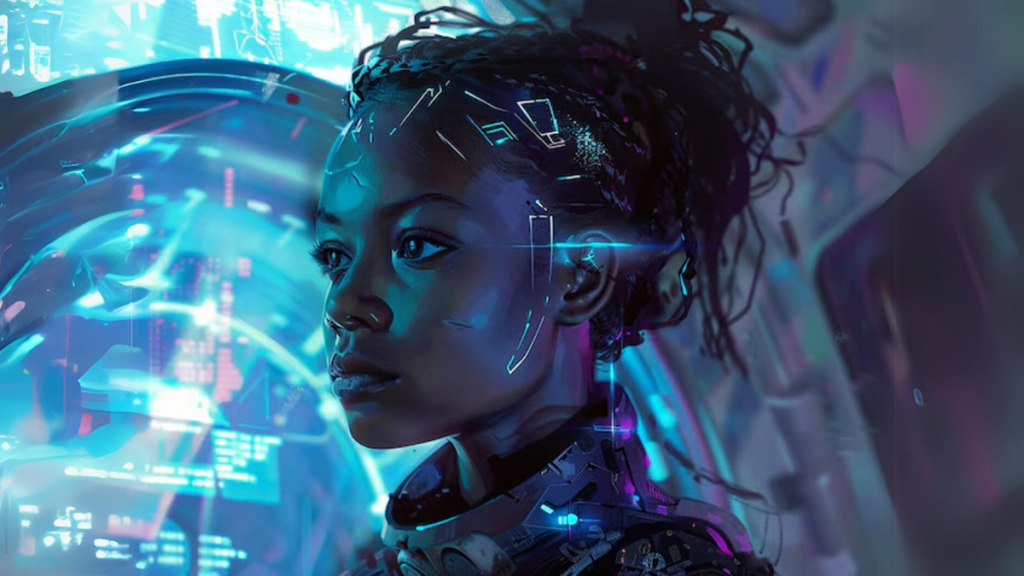Artificial intelligence (AI) has significantly advanced in recent years, permeating various aspects of our lives. One of the most intriguing applications of AI is in the creation of personalized AI companions. These virtual partners are designed to provide support, companionship, and assistance, tailored to the unique needs and preferences of individuals. In this article, we will explore the concept of personalized AI companions, their development, and their potential impact on our lives.
What are Personalized AI Companions?
Personalized AI companions are virtual entities powered by advanced AI algorithms. These companions can interact with users in a human-like manner, understanding and responding to their needs, emotions, and preferences. They are designed to simulate human companionship, offering conversational abilities, emotional support, and practical assistance.
Key Features of Personalized AI Companions
- Conversational Abilities: AI companions are equipped with natural language processing (NLP) capabilities, allowing them to engage in meaningful conversations with users. They can understand context, recognize emotions, and provide appropriate responses.
- Emotional Intelligence: These companions can detect and respond to the emotional states of users, offering empathy and support. They can adapt their responses based on the user’s mood and preferences.
- Personalization: AI companions can learn from interactions, gradually becoming more attuned to the user’s likes, dislikes, habits, and routines. This allows them to provide highly personalized experiences.
- Assistance and Support: AI companions can assist with various tasks, such as scheduling, reminders, information retrieval, and even therapeutic support. They can offer practical solutions and guidance in daily activities.
The Development of Personalized AI Companions
Natural Language Processing (NLP)
One of the foundational technologies behind personalized AI companions is NLP. NLP enables machines to understand, interpret, and generate human language. Through sophisticated algorithms, AI companions can process text and speech, extracting meaning and context. This allows for fluid and natural interactions, making the experience more human-like.
Machine Learning and Data Analysis
Machine learning plays a crucial role in the development of personalized AI companions. By analyzing vast amounts of data, these companions can learn and adapt to individual users. They use algorithms to identify patterns and make predictions, improving their responses and interactions over time. Continuous learning from user interactions ensures that the AI companion becomes increasingly attuned to the user’s needs.
Emotional AI
Emotional AI, also known as affective computing, focuses on recognizing and responding to human emotions. By analyzing voice tones, facial expressions, and textual cues, AI companions can gauge the user’s emotional state. This capability allows them to provide appropriate emotional support, fostering a deeper connection between the user and the virtual companion. You can also explore https://herahaven.ai/ website and create your personalized AI girlfriend.
Applications of Personalized AI Companions
Elderly Care
In elderly care, personalized AI companions can provide companionship and assistance to older adults. They can help with medication reminders, monitor health conditions, and offer engaging activities to keep the mind active. AI companions can also alleviate loneliness by providing consistent interaction and emotional support.
Education and Learning
AI companions can enhance the learning experience for students. They can offer personalized tutoring, answer questions, and provide additional resources based on the student’s learning style and pace. By adapting to the individual needs of each student, AI companions can make education more accessible and effective.
Daily Assistance
For everyday tasks, AI companions can be invaluable. They can manage schedules, set reminders, and assist with information retrieval. Whether it’s finding a recipe, setting up a meeting, or providing travel directions, AI companions offer practical solutions to streamline daily activities.
Conclusion
Personalized AI companions represent a remarkable fusion of technology and human interaction. With their ability to understand, respond, and adapt to individual needs, they offer a unique and valuable form of support and companionship. As AI technology continues to evolve, the possibilities for personalized AI companions are boundless, promising to enrich our lives in ways we have yet to imagine.




